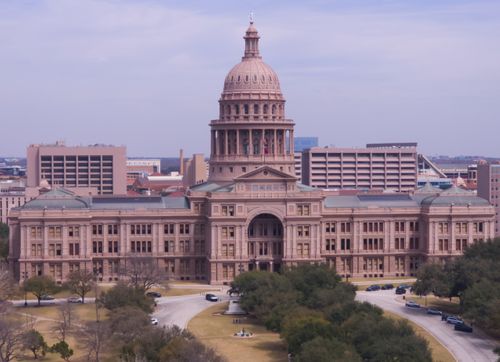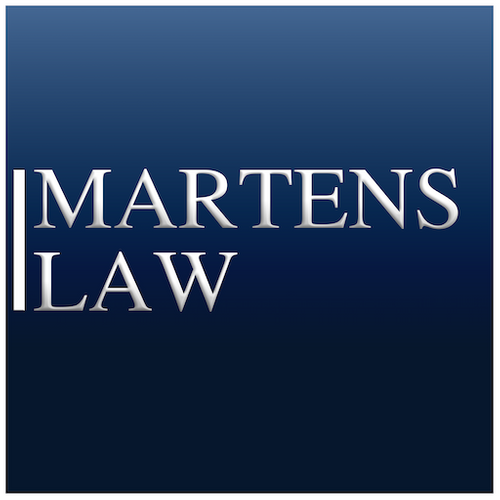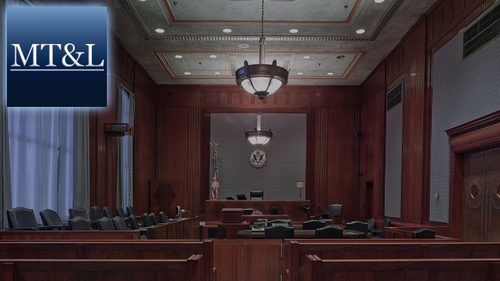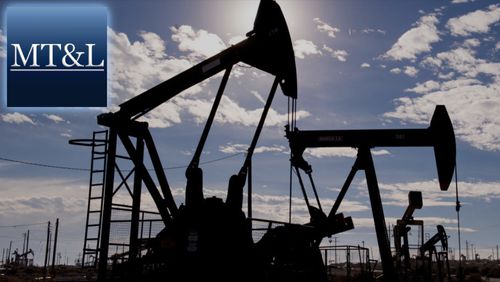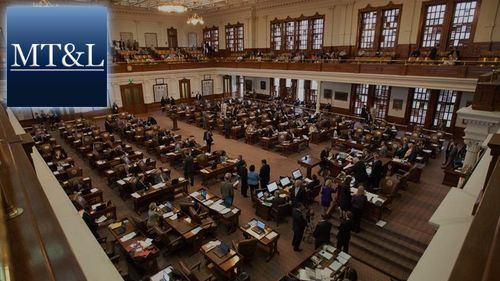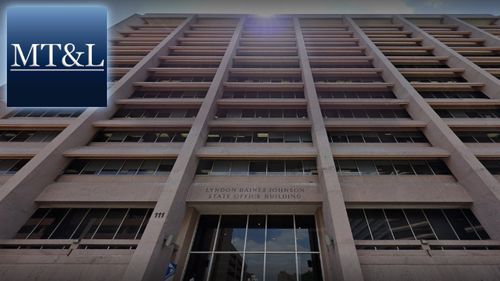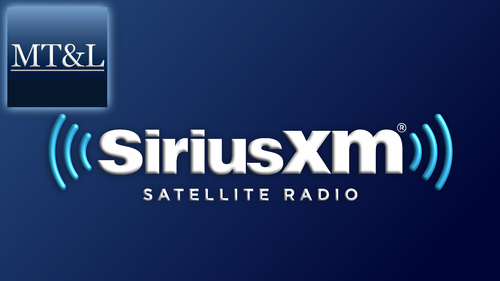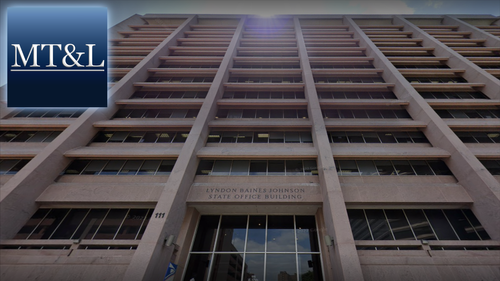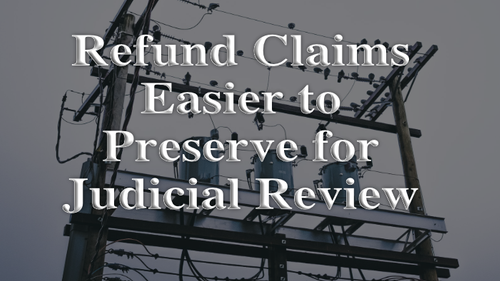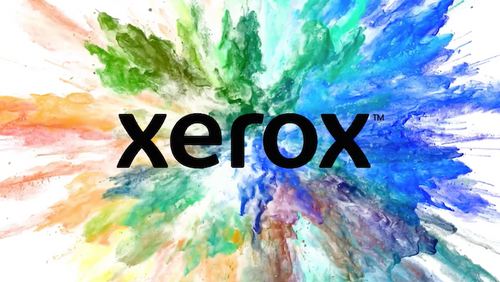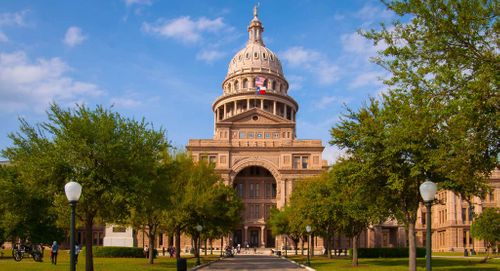Blog
Texas Tax Update: New R&D Law Simplifies and Conforms Credit to Federal Law What Taxpayers and Businesses Need to Know About Senate Bill 2206
Gordon Martens & Drew Renken
Texas just took a major step in reshaping how taxpayers performing research and development (R&D) activities claim franchise tax credit for R&D expenses.
Thanks to efforts championed by the Texas Taxpayers and Research Association (TTARA), the new R&D credit established by Senate Bill 2206 greatly simplifies the franchise tax credit verification process for taxpayers and the Texas Comptroller alike.
moreTexas Tax Update: New Texas “DOGE” Law Shifts Power Balance in Texas Lawsuits What Taxpayers and Businesses Need to Know About Senate Bill 14
Gordon Martens & Jimmy Martens
Texas just took a major step in reshaping how state agencies—like the Texas Comptroller of Public Accounts—adopt rules and how courts review and apply those rules. Senate Bill 14, now law as the Regulatory Reform and Efficiency Act, significantly rewires the administrative process, and most importantly for Texas taxpayers, eliminates Texas courts’ deference to agency interpretations of the law.
moreTexas Tax Update: Bill Proposal Regarding Local Sales Tax Sourcing
Gordon Martens and Valentyna Kravchuk
This article provides an update on House Bill 134 regarding local sales tax sourcing in Texas.
After a multi-year court-battle to shift certain local tax sourcing from origin sourcing to destination, the Legislature is now considering a bill that would achieve the Comptroller’s proposed destination sourcing by amending the Texas local tax sourcing laws.
moreTexas Tax Update: Upcoming 2024 Trials
Gordon Martens & Valentyna Kravchuk
This article provides a short overview of the various Texas tax trials set for 2024.
moreTexas Sales Tax Update: Texas Comptroller Changes Local Tax Responsibilities for Online Sales
Gordon Martens & Valentyna Kravchuk
The Comptroller has once again amended his local tax sourcing rule as part of his years-long effort to shift local tax sourcing for online sales to the customer’s location. The amendment, however, is not limited to online sales so it could affect taxpayers in a wide variety of circumstances.
moreComptroller Reverses Policy to Recognize Nontaxable Treatment of Flowback Services and Water Transfer Services
Gordon Martens and Valentyna Kravchuk
On December 13, 2023, the Comptroller issued an interoffice memorandum reversing prior policy and providing the circumstances under which flowback services and water transfer services are not subject to Texas sales. Prior policy treated these services as the taxable rental of the flowback and water transfer equipment. The principal requirement for flowback and water transfer services to receive nontaxable treatment is for the service provider to have on-site personnel who continuously regulate and control the operation of the equipment as needed.
Why the change?
In 2020, the Comptroller issued a memo providing guidance to its Audit Division on the taxability of flowback services. The memo stated that charges for flowback were taxable as the rental of equipment and that sales or use tax was due on the total charge for the rental of the equipment. After an industry round table in August of 2023, the Comptroller decided that flowback and water transfer services are non-taxable, provided that they fit within the description of flowback services in the memo.
What are flowback and water transfer services?
Flowback and water transfer services are provided at oil and gas well sites to support hydraulic fracturing operations. Flowback operations involve the temporary use of oilfield equipment to handle the fluid that flows back from fracking operations. After the injection process in the fracking operation is completed, the internal pressure of the rock formation causes fluid to return to the surface. This flowback fluid contains the frack fluid plus other naturally occurring materials. Well operators hire flowback service providers to handle this fluid.
moreTexas Tax Legislative Update: New Bills Filed in the Upcoming Texas Legislature
By Gordon Martens and Reid Diaz
Pre-filing for the upcoming 88th legislative session began yesterday, November 14, 2022. The following proposals filed on the first day seek to make significant changes to Texas sales tax and franchise tax policy.
Sales Tax & Franchise Tax Bills
H.B. No. 391 proposes to repeal the franchise tax entirely after report year 2022. It would not affect the status of an entity that has had its corporate privileges, certificate of authority, certificate of organization, certificate of limited partnership, corporate charter, or registration revoked, suit filed against it, or a receiver appointed prior to the repeal, although taxable entities could still challenge those actions.
H.J.R. No. 36 proposes a constitutional amendment to eliminate school district maintenance and operations property taxes. The prohibition is conditioned on a yearly determination by the Comptroller that the prohibition will not decrease school funding for school districts for the tax year or subsequent tax year.
H.B. No. 268 proposes an overhaul of the tax system that would eliminate virtually all existing taxes and enact a value-added tax at a combined state and local maximum rate of 8.72%. The tax base would be the amount by the value of property and services supplied by a taxpayer to its customers exceed the value of property and services supplied to the taxpayer by its vendors
moreTexas Sales Tax Update: Texas Comptroller Proposes Amendments to Local Tax Sourcing (Again)
Gordon Martens
On September 23, 2022, the Texas Comptroller proposed amendments to Rule 3.334, which deals with local sales and use taxes. This is the latest development in a years-long effort by the Comptroller to change local tax sourcing for many online and shopping app sales.
In 2020, the Comptroller adopted amendments to Rule 3.334’s subsection (b)(5) which shifted the local tax sourcing for many internet and shopping app sales to the customer’s location instead of the seller’s location (i.e., “origin” sourcing). Texas law provides that a sale occurs where it is “consummated” and provides that sales are typically consummated at the seller’s place of business. See, e.g., Tex. Tax Code § 321.203(b) (“If a retailer has only one place of business in this state, all of the retailer's retail sales of taxable items are consummated at that place of business . . .”).
As a result of this origin sourcing, cities in Texas have been successful in attracting out-of-state businesses to build large facilities by offering incentives in the form of a partial share of the local tax collected. Comptroller Hegar says that those deals, and—origin-based local tax sourcing underpinning them—are unfair to the myriad counties, cities and other local tax jurisdictions that aren’t party to them and who don’t share in the tax proceeds, even if the goods are delivered to residents there. In 2020, Comptroller Hegar decided to amend his local sales tax rule to provide that orders placed through websites and shopping apps aren’t received at a “place of business.” That meant that more of those sales would be sourced to the customer’s location (i.e., “destination” sourcing).
moreTexas Franchise Tax Update: Texas Supreme Court Finds in Taxpayer’s Favor in Sirius Apportionment Case
Gordon Martens
In Hegar v. Sirius XM Radio, Inc., the Texas Supreme Court reversed the Third Court of Appeals, rejecting the Comptroller’s argument that receipts from services should be apportioned based on the “receipt-producing, end-product act” test. Instead, the court found that Sirius’ services should be apportioned based upon the locations of the employees and equipment providing the service.
Sirius XM Radio performs its satellite radio subscription services through an extensive network of equipment located around the globe. While roughly 8–9% of Sirius’ customers are in Texas, virtually none of its equipment, employees, or operations are located in Texas. Sirius broadcasts over 150 satellite channels, produced primarily from studios in New York City and Washington, D.C. Only one Sirius radio channel has ever been produced in Texas. Sirius transmits signals to satellites using uplink facilities in New Jersey, Washington D.C., and Georgia. These satellites are launched from Kazakhstan and orbit 22,000 miles above the earth. They transmit signals back to Earth, where they are received either (1) directly by radios in customer vehicles or (2) indirectly after being received by a terrestrial repeater. Further, Sirius controls these satellites through facilities in Panama, Ecuador, and Georgia. Finally, the radios receiving the signals are owned by the customers, not Sirius.
moreTexas Franchise Tax Update: Comptroller Issues FAQs on Cost of Goods Sold
Jimmy Martens & John Grubb
On February 4, 2022, the Texas Comptroller recently provided guidance clarifying several Texas franchise tax Cost of Goods Sold (“COGS”) issues for Texas taxpayers. The Comptroller issued the guidance as responses to Frequently Asked Questions (“FAQs”). The FAQs touch on several important topics, including the proper calculation of COGS and whether labor and other expenses across certain industries qualify for subtraction, which components of mixed transactions qualify for a COGS subtraction, how to determine Internal Revenue Code (“IRC”) Section 179 expense limitations and federal bonus depreciation for Texas COGS purposes, and information on capitalizing versus expensing costs.
Texas COGS is calculated separately from federal reporting and industry calculations.
Subtractable costs must be expressly listed in Texas Tax Code § 171.1012. Several industry-specific COGS subtractions covered by the FAQS include:
Is the Expense Included in COGS Calculation?
Contractor’s payments to subcontractors
Yes, if the expenses relate to real property construction, improvement, remodeling, repair or industrial maintenance.
moreRefund Claims Easier to Preserve for Judicial Review—For Now
Lacy Leonard & John Grubb
A Texas appellate court sitting en banc recently made it easier for taxpayers to preserve refund claims for judicial review by quoting the relevant subsection(s) of the manufacturing exemption statute and including supporting documentation identifying the equipment and transactions at issue.
El Paso Electric Company (“El Paso”) seeks refund of sales tax paid in error on exempt manufacturing equipment.
El Paso is a fully integrated public utility in the business of manufacturing, generating, transmitting, and distributing electricity in west Texas and southern New Mexico. Hegar v. El Paso Electric Company, No. 03-18-00790-CV (Tex. App.—Austin Aug. 13, 2020, no pet. h.) (majority opinion). El Paso filed an administrative sales tax refund claim for different types of equipment under a variety of sales tax exemptions. Of the $5.1 million total refund El Paso sought, the Comptroller agreed to refund over $2.5 million.
The Comptroller would not agree to refund sales tax El Paso allegedly paid in error on the purchase of meters and disconnect collars that El Paso believed were exempt because they were “telemetry units related to step-down transformers,” a specific type of exempt manufacturing equipment. Tex. Tax Code § 151.318(a)(4). After the Comptroller denied El Paso’s administrative refund claim, El Paso filed a district court lawsuit. The Comptroller moved to dismiss the district court suit, arguing that the statement of grounds filed in El Paso’s earlier administrative refund claim failed to adequately put the Comptroller “on notice” of El Paso’s claim for telemetry units related to step-down transformers.
moreManufacturing Exemption - Raw Materials as Real Property
Jimmy Martens & John Grubb
A Texas appellate court recently allowed the manufacturing exemption for equipment used to process real property into products.
Lignite begins as real property and ends as tangible personal property.
Texas Westmoreland Coal Company (“Westmoreland”) owned and operated a lignite coal mine in Texas. Lignite, also called brown coal, is the lowest grade of coal, but like other forms of coal, is found in large veins underground. Hegar v. Texas Westmoreland Coal Co., No. 03-20-00406-CV (Tex. App.—Austin Oct. 7, 2021, no pet. h.).
To extract the coal, Westmoreland first removes the top layer of soil using a dragline (which was not at issue in the case) to expose the lignite formation. Then it uses a variety of excavators with large, toothed buckets to crack, break, or rip apart the lignite into smaller pieces to meet its customer’s size requirements. Once the buckets are full, the excavators drop the lignite into dump trucks from approximately 12 feet high, further breaking the lignite apart. At the end of the process, the lignite ranges from the size of a pea to no larger than a soccer ball.
Westmoreland claimed the manufacturing exemption on its purchase of the excavators.
moreTexas Franchise Tax Update: Finance Leases Qualify for Lower Franchise Tax Rate
Jimmy Martens and John Grubb
Businesses that finance sales using leases should consider filing Texas franchise tax refund claims based upon a recent Texas court case.
A Texas appellate court recently held that Xerox Corporation (“Xerox”) was entitled to compute its franchise tax based upon the lower Texas franchise tax rate, which resulted in a refund of half of the Texas franchise tax Xerox had paid during the relevant periods.
Xerox leases printers long-term to businesses under financing lease agreements. Xerox’s finance lessees:
- Receive possession, but not title, to the equipment;
- Were responsible for insuring the equipment against loss;
- Were required to make all payments under the lease, even if the contract was terminated; and
- Could purchase the equipment at the end of the lease but typically did not because the lease was designed to last for the useful life of the equipment.
Wholesale sales qualify for lower Texas franchise tax rate, but rentals do not.
Generally, taxpayers pay Texas franchise tax at the rate of 0.75%. Tex. Tax Code § 171.002(a). Retailers and wholesalers (collectively hereinafter “Retailers) pay Texas franchise tax at half that rate, or 0.375%. Tex. Tax Code § 171.002(b).
moreLocal Sales Tax Sourcing Rules for Online Retailers Delayed Again
Lacy Leonard and Gordon Martens
Texas Taxpayers have reached a deal with the Comptroller to delay implementation of the Comptroller’s new local sales tax sourcing rules for internet and shopping app sales until a trial expected to occur the week of June 13, 2022.
On Monday, August 30, 2021, Travis County District Judge Karin Crump presided over hearings over whether to issue an injunction blocking an effort by Comptroller Glenn Hegar to unilaterally upend the local sales tax sourcing rules established under Texas law. The next morning, as the hearing reconvened, the parties announced an agreement to delay implementation of these new rules and the Comptroller acquiesced in the injunction.
The Comptroller’s rule amendments would switch online sales to being sourced to the customer’s location, instead of the business location of the seller. This would apply to many sellers who have only one place of business in Texas. Sourcing online sales to these sellers’ business locations enhanced local taxing authorities’ ability to incentivize taxpayers to locate large facilities within their boundaries, since they could offer the taxpayers a cut of the local sales tax revenue. Generally, local governments (and the citizens they represent) want businesses to relocate within their boundaries. In doing so, the relocated businesses create jobs and boost the local economy. They also generate sales and property taxes for the local governments’ operations to help fund things like public schools and fire departments.
moreNew Laws Ease Taxpayers’ Path to State Court
Katy Ballard and Gordon Martens
On June 7, 2021, the Texas Governor signed both HB 2080 and SB 903 into law. The bills substantially lower the practical hurdles that taxpayers must meet to challenge the Comptroller in state court.
New Option to Challenge Audit Assessments
Generally, to bring a protest suit in state court, a taxpayer must pay the audit assessment under protest and submit a written protest letter raising the arguments that it will raise in its protest suit. Under the current “pay-to-play” provision of the Texas Tax Code, a taxpayer must pay the entire amount of the audit assessment to challenge it in court.
A newly-enacted law, HB 2080, eases that burden by allowing the taxpayer to pay only the undisputed portion of its audit assessment. Importantly, however, any portion of a disputed amount that is not initially paid but is ultimately determined to be due will accrue penalties and interest. Moreover, the new procedure requires that the taxpayer complete an administrative redetermination proceeding prior to initiating the suit. The new law effectively lowers the price of admission into state court but adds to the administrative remedies the taxpayer must first exhaust. Taxpayers retain the option to pay the entire assessment under protest, bypass the administrative proceeding, and go directly to court.
more
